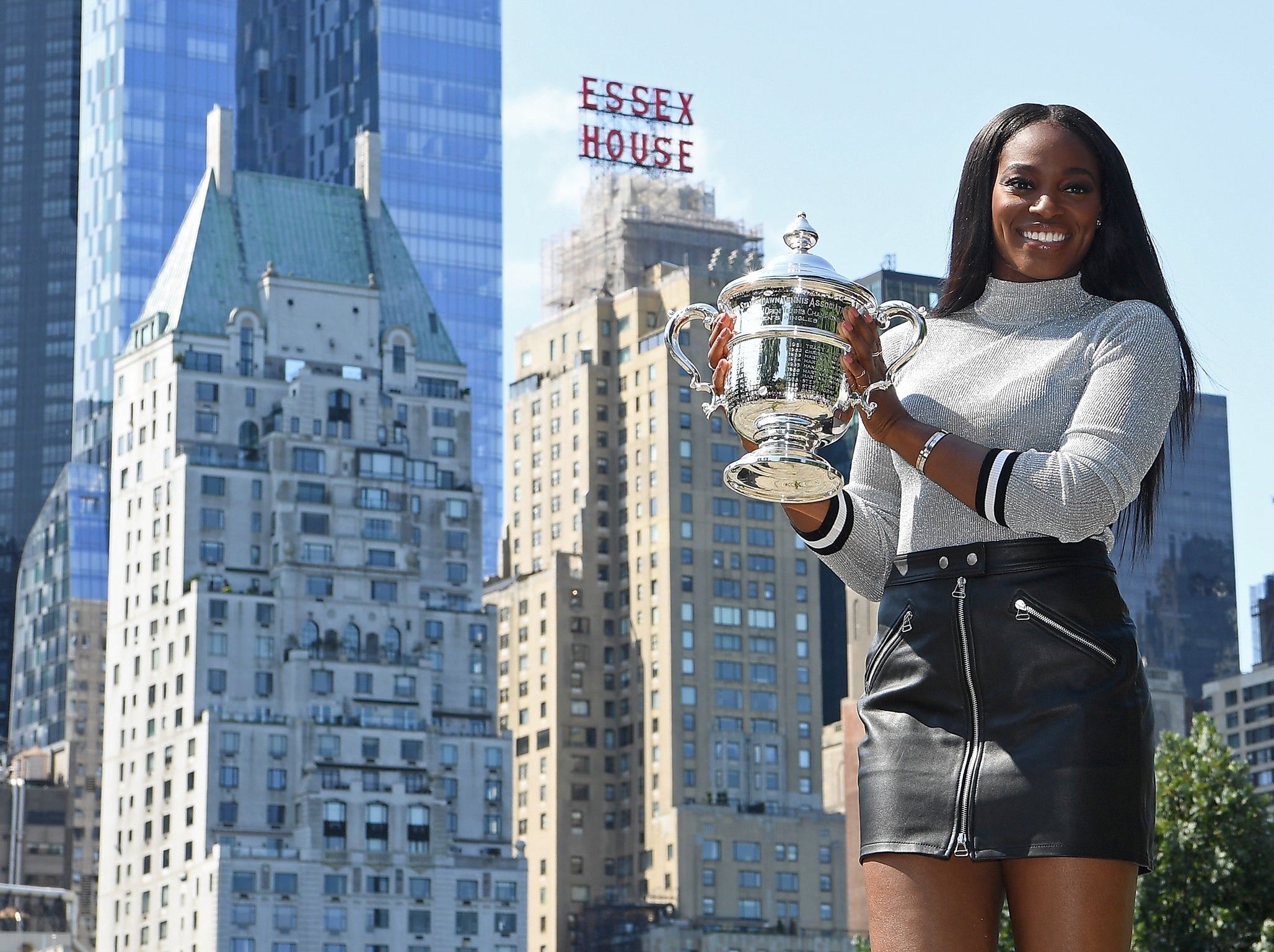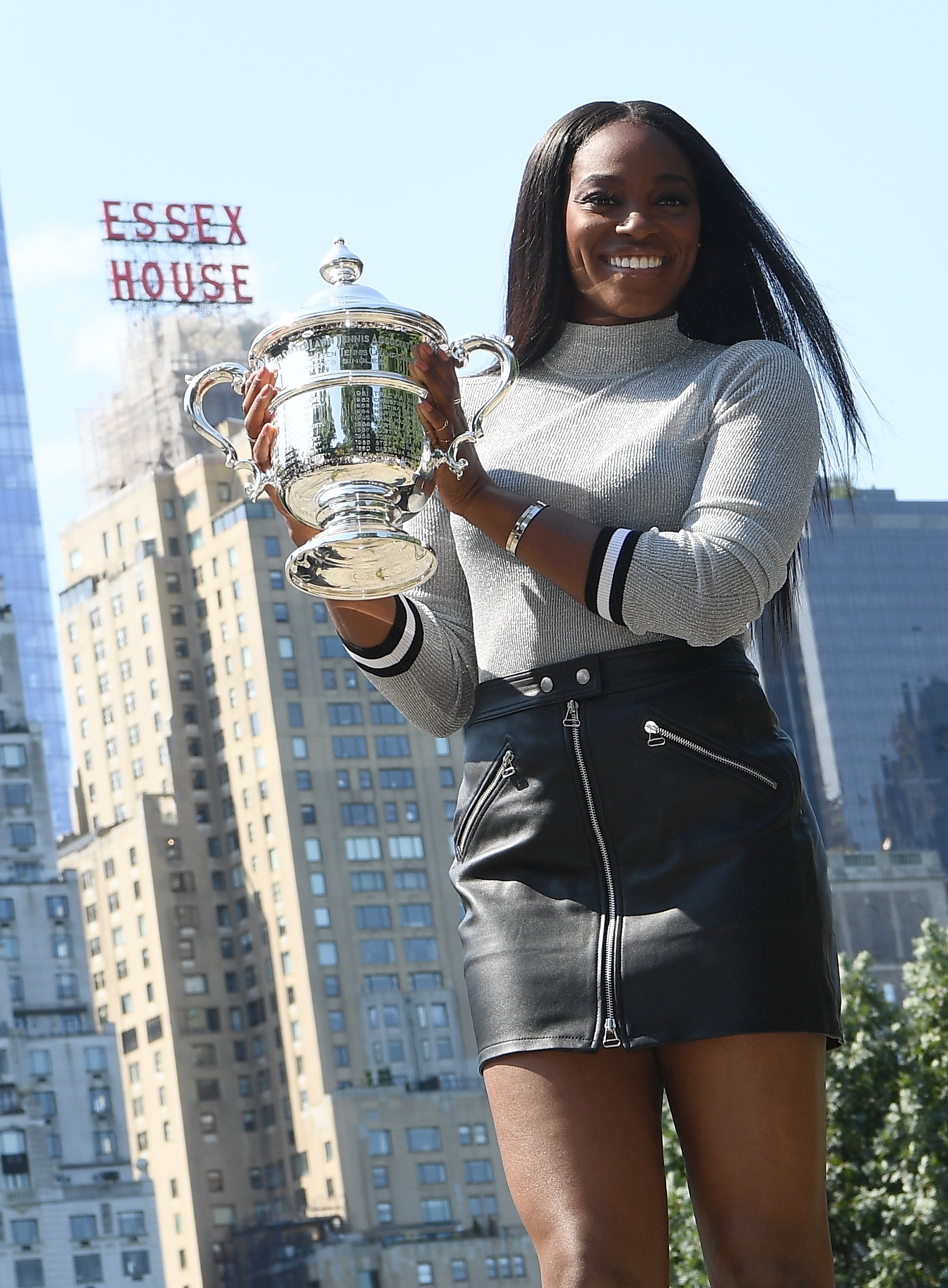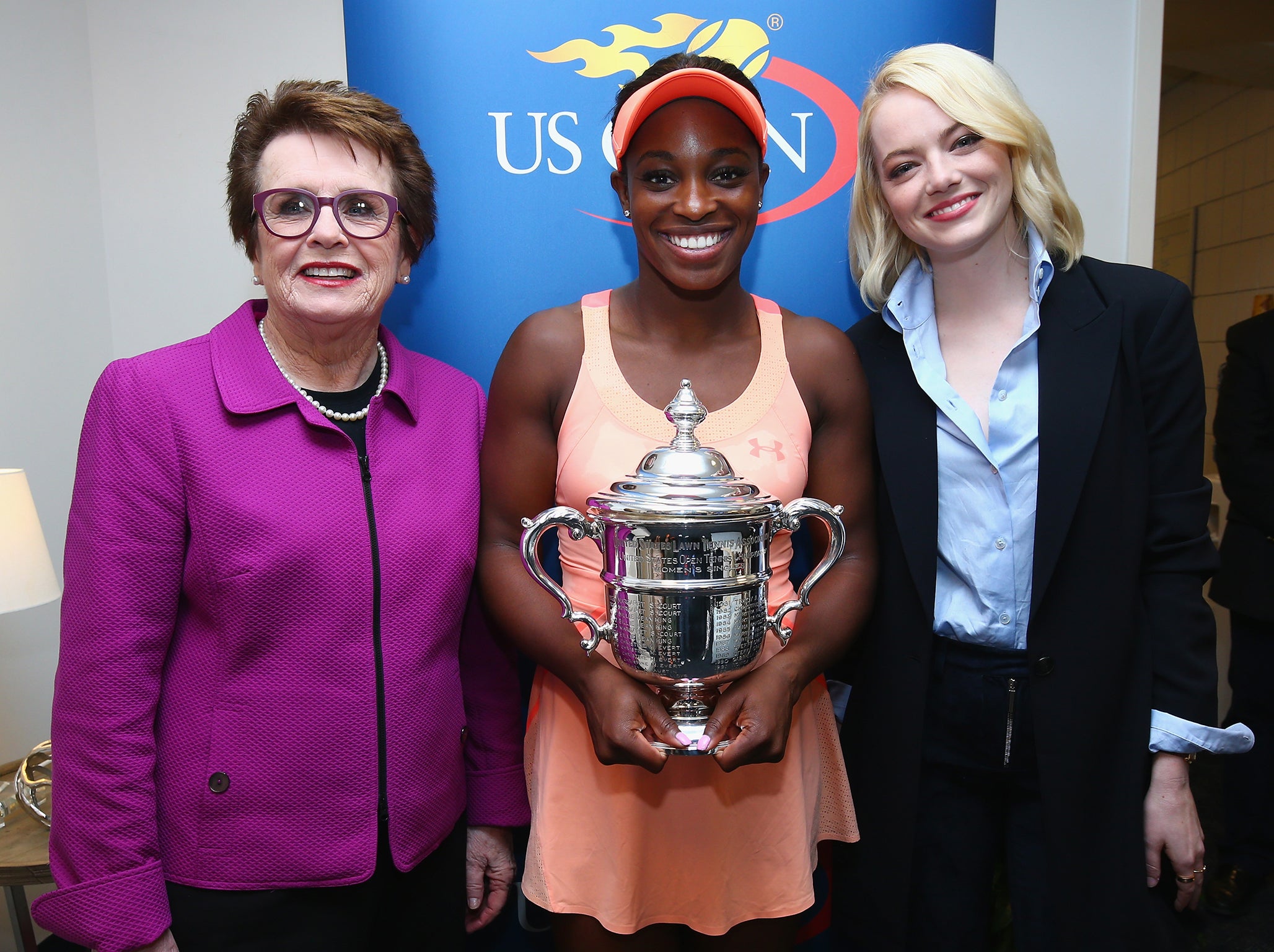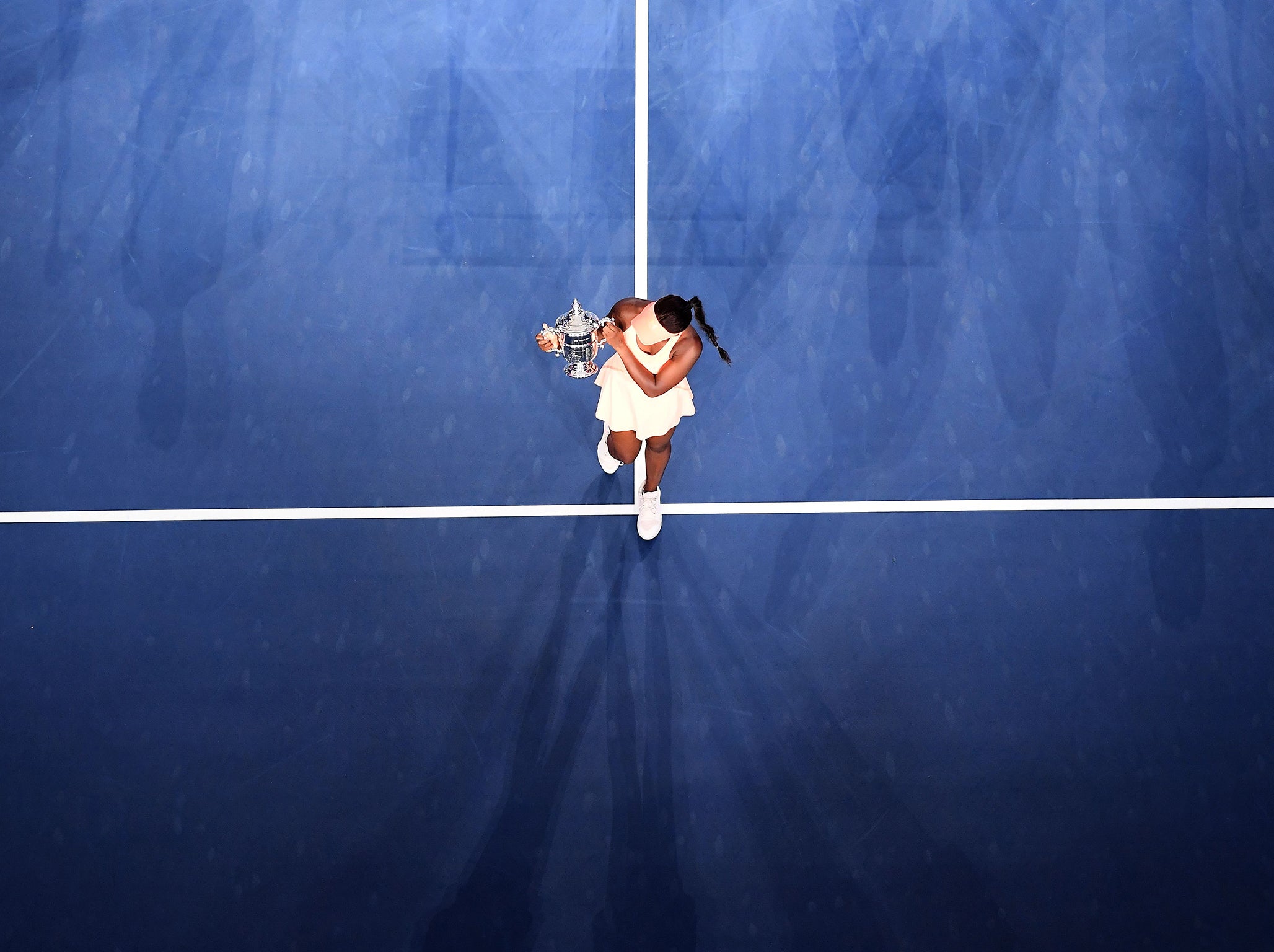Sloane Stephens still getting used to the trappings of wealth after beating Madison Keys in US Open final
Stephens, whose previous best run at a Grand Slam had been when she reached the semi-finals of the 2013 Australian Open, said the size of her winners cheque had come as a surprise

Your support helps us to tell the story
From reproductive rights to climate change to Big Tech, The Independent is on the ground when the story is developing. Whether it's investigating the financials of Elon Musk's pro-Trump PAC or producing our latest documentary, 'The A Word', which shines a light on the American women fighting for reproductive rights, we know how important it is to parse out the facts from the messaging.
At such a critical moment in US history, we need reporters on the ground. Your donation allows us to keep sending journalists to speak to both sides of the story.
The Independent is trusted by Americans across the entire political spectrum. And unlike many other quality news outlets, we choose not to lock Americans out of our reporting and analysis with paywalls. We believe quality journalism should be available to everyone, paid for by those who can afford it.
Your support makes all the difference.When a Roger Federer or a Serena Williams win a Grand Slam title the prize money is probably all but inconsequential, but Sloane Stephens’ eyes opened wide when she was presented with her cheque for $3.7m (£2.84m) after winning the US Open here on Saturday.
At her post-final press conference Stephens was asked if winning her first Grand Slam title would whet her appetite for more success. “Did you see the cheque that lady handed me?” Stephens said. “Man, if that doesn’t make you want to play tennis, I don’t know what will.”
Stephens, whose previous best run at a Grand Slam tournament had been when she reached the semi-finals of the 2013 Australian Open, said the size of the cheque had come as a surprise.
“The other day I saw a ticker going across the TV screen,” she said. “The prize money for the semi-finals was $900,000 and I literally almost passed out. I was like: ‘Oh my God!’ The last time I had played in a semi it was $500,000 or something like that. It was shocking.”
By beating Madison Keys 6-3, 6-0 Stephens almost doubled her career prize money. Asked if she felt bad about beating her close friend in the final, Stephens replied: “Bad for her? She was in the final, too. What do you mean? Did you see the cheque she’s about to get? I’m sure she’ll be just fine.”Stephens admitted that she has expensive tastes.
“Shoes, bags, cars, clothes, houses, anything,” she said. “My family also have their own expensive tastes, let me tell you. They’re on another level as well. I like nice things.”

She said the most extravagant purchase she had made was the house she bought two years ago. “People skimp on their houses,” Stephens said. “My house is like my sanctuary. It has to be really nice. I take pride in that.”
In world ranking terms, Stephens’ reward for her victory will be a rise from No 83 to No 17 in Monday’s updated list. Only six weeks ago she was ranked No 957 as she began her comeback after 10 months out of the game because of foot surgery.
The 24-year-old is the lowest ranked woman ever to win the title here, Kim Clijsters having been unranked when she triumphed in 2009 in only her third tournament since starting her comeback after a two-year break from the game. Since the launch of the rankings in 1975, the only lower ranked woman to reach any Grand Slam singles final was Chris O’Neil, who was world No 111 when she won the Australian Open in 1978.

Stephens said that she had never doubted that she would be able to come back following her surgery but admitted: “There were definitely some question marks as to whether I was going to be able to play at the same level, to compete at the same level, and how long it was going to take me to start playing well again. Those types of things obviously are always on your mind. There were a lot of question marks.”
Stephens said she did not put any weight on the foot for 16 weeks after her operation. “I was really happy just to be walking again,” she said.
She did not start hitting again until the end of April and even then had to do so while sitting in a chair. “It was like two weeks that I had to sit in the chair,” she said. “Then I was able to stand and hit.”

Stephens played her first comeback tournament at Wimbledon but did not win a match until her third event. However, her runs to the semi-finals in Toronto and Cincinnati paved the way for her remarkable performances here.
Kamau Murray, Stephens’ coach, thinks the way she had to fight to come back from injury has made her a better competitor on the court. “She’s a tougher player,” he said. “When it first happened I said to her: ‘This is not going to be fun. It’s going to be torture for you and for me.’ You just have to count days, go day by day and enjoy your evenings because the next day will be hell all over again.
“We do a good job of practising every day and then shutting down. It didn’t become: ‘Oh my God I’ve got another seven weeks.’ We kept it fun, but she had to dig deep. She has been increasing her level of fight for a year now. We always said: ‘You’ve got to earn this.’ We didn’t get some of the wildcards we expected so we knew she had to earn it.”
He added: “She has remained positive throughout the process. You get the game taken away from you and you start to appreciate it more. She loves to play and when it’s taken away from you, you think: ‘I guess I really do love it.’ She would call me and say: ‘I can’t wait to get back on the court’.”
Join our commenting forum
Join thought-provoking conversations, follow other Independent readers and see their replies
Comments